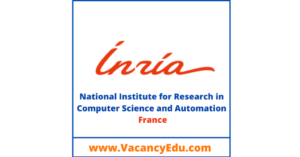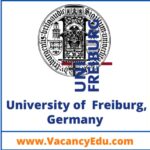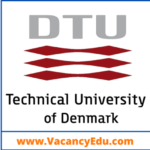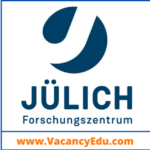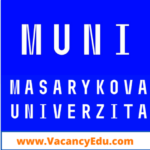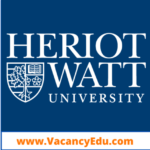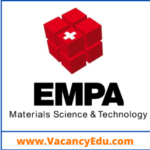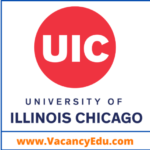Inria, France invites online Application for various Postdoctoral Fellowship in their different Departments. We are providing a list of Postdoc Fellowship positions available at Inria, France.
Eligible candidate may Apply as soon as possible.
(01) Postdoctoral Fellowship Position
Postdoc Fellowship Position summary/title: Post-Doctoral Research Visit F/M Computational design of next-generation optical metasurfaces
Atlantis is a joint project-team between Inria and the Jean-Alexandre Dieudonné Mathematics Laboratory at Université Côte d’Azur. The team gathers applied mathematicians and computational scientists who are collaboratively undertaking research activities aiming at the design, analysis, development and application of advanced numerical methods for solving systems of partial differential equations (PDEs) modelling nanoscale light-matter interaction problems. In this context, the team is developing the DIOGENeS [https://diogenes.inria.fr/] software suite, which implements several Discontinuous Galerkin (DG) type methods tailored to the systems of time- and frequency-domain Maxwell equations possibly coupled to differential equations modeling the behaviour of propagation media at optical frequencies. DIOGENeS also includes a component dedicated to the optimization of geometrical characteristics of nanostructures driven by some performance objective in the contex of inverse design strategies of nanophotonic setups. DIOGENeS is a unique numerical framework leveraging the capabilities of DG techniques for the simulation of multiscale problems relevant to nanophotonics and nanoplasmonics.
Deadline : 2026-06-30
(02) Postdoctoral Fellowship Position
Postdoc summary/title: Post-Doctoral Research Visit F/M Bridging the gap between combinatorial proof theory and subatomic proof theory
Candidates for postdoctoral positions are recruited after the end of their Ph.D. or after a first post-doctoral period: for the candidates who obtained their PhD in the Northern hemisphere, the date of the Ph.D. defense shall be later than September 1, 2022; in the Southern hemisphere, later than April 1, 2022. In order to encourage mobility, the postdoctoral position must take place in a scientific environment that is truly different from the one of the Ph.D. (and, if applicable, from the position held since the Ph.D.); particular attention is thus paid to French or international candidates who obtained their doctorate abroad.
Deadline : 2025-10-31
Looking for more Postdoctoral Positions Click Here
(03) Postdoctoral Fellowship Position
Postdoc Fellowship Position summary/title: Post-Doctoral Research Visit F/M Tiny Digital Twins: MLops, Embedded Neural Networks and Wireless Communication Compression
The postdoc focuses on novel and advanced embedded AI, combining two complementary aspects. On the one hand, efficient data communication using AI [2,3] with neural network models that can summarize and compress data from one or more sensors to a server. On the other hand, TinyML and TinyMLops [1] which focus on the implementation of AI directly on constrained microcontrollers.
TinyML aspect: The goal is to implement efficient AI model execution (TinyML) on microcontrollers, and manage AI models (MLOps: remote updates, performance monitoring – here secure TinyMLOps) on hardware such as Nordic nRF52, STM32, ESP32, or RISC-V. Networking will use IoT technologies such as BLE, 802.15.4, or LTE-M.
On top of this hardware, prototypes will be developed in conjunction with an open-source operating system written in embedded Rust (Ariel OS [4]) or embedded C (RIOT [5]).
These prototypes will be co-developed and tested with Freie Universität Berlin. This project follows up on RIOT-ML (see below [6]), also linked to concrete industrial use cases for efficient sensor-to-server communication (Digital Twins).
Deadline : 2025-09-30
(04) Postdoctoral Fellowship Position
Postdoc Fellowship Position summary/title: Post-Doctoral Research Visit F/M Distributed Machine Learning at the Network Edge
The Internet was conceived to enable computer resources’ time-sharing, but soon its main function became to deliver content to end users, but it is now called to play a new key role: to pervasively support machine learning (ML) operation both for model training and prediction serving.
There are two aspects calling for Internet-wide deployment of ML systems. First, data—one key ingredient of ML success—is often generated by users and devices at the edge of the network. The classic ML operation in the cloud requires such data to be collected at a single computing facility where training occurs. Data aggregation can be very costly, or simply impossible because of capacity constraints, privacy issues, or ownership ones. These scenarios call for distributed learning systems, where computation moves, at least in part, to the data. For example, Google’s federated learning [mcmahan17,kairouz21] enables mobile phones, or other devices with limited computing capabilities, to collaboratively learn an ML model while keeping all training data locally. Distributed ML training is already a difficult task in a cluster setting. Indeed, optimization techniques, distributed systems, and ML models are a triad difficult to untangle: e.g., relaxed state consistency across computing nodes increases system throughput but may jeopardize convergence of the optimization algorithm or affect the final solution selected, leading to models with very different generalization capabilities [chen16]. Additional challenges arise when training moves to the Internet. First, the system potentially scales up to billions of devices, against at most thousands of GPUs to break ML training records in a cluster. Second, local datasets are highly heterogeneous with very different sizes and feature/label distributions. Third, devices may have very different hardware and connectivity. Fourth, communications are often unreliable (devices can be switched off at any time), slow (latencies are 2 orders of magnitude larger), and expensive for battery-constrained devices. Fifth, privacy concerns are often important and limit the operations that can be performed during training to avoid inadvertently disclosing sensible information. Finally, training is more vulnerable to malicious attacks. For all these reasons, federated learning (as ML training over the Internet is now usually called) has emerged in the last years as a specific research topic—well distinct for example from high-performance computing or cloud computing—at the intersection of machine learning, optimization, distributed systems, and networking.
Deadline : 2025-08-31
(05) Postdoctoral Fellowship Position
Postdoc Fellowship Position summary/title: Post-Doctoral Research Visit F/M DIPTYQUE project: acquisition and rendering of animated furniture for realistic museographic reproduction
– Develop a lightweight, calibrated acquisition method that can be easily used by museum and heritage site professionals.
– Develop a representation and rendering method associated with the acquisition acquisition method in order to
– render furniture under different lighting conditions (artificial, outdoor) and from different different points of view
– Animate furniture (e.g., drawers opening)
– Implement the rendering method in an Open-Source protype
– Study the feasibility of integrating the rendering method developed into a commercial such as Unreal Engine.
Deadline : 2025-08-31
Click here for “Postdoc Application Cover Letter Template”
Click here to know “How to write a Postdoc Job Application or Email”
(06) Postdoctoral Fellowship Position
Postdoc Fellowship Position summary/title: Post-Doctoral Research Visit F/M Solving Convex Optimization Problems in Nonlinear Predictive Control Based on Fast Quadratic Optimization
The goal of the project-team is to better understand and formalize the effects of complex environments on the dynamics of the interconnections, as well as to develop methods and tools for the analysis and control of such systems. 1) Modeling of complex environments : The environment is seen as a dynamical object in order to model phenomena such as a temporary loss of connection, a nonhomogeneous environment or the presence of the human factor in the control loop but also the problems involved with technological constraints. 2) Questions of stability characterization or robust stabilization of possibly nonlinear infinite-diemensional are considered by various methods : $H_\infty$-control, nonlinear control via Lyapunov-Krassovski techniques, observers, adaptative control, predictive control, set invariance. 3) Determination of finite-dimensional controllers of low order for infinite-dimensional systems.
Deadline : 2025-08-31
(07) Postdoctoral Fellowship Position
Postdoc Fellowship Position summary/title: Post-Doctoral Research Visit F/M Model placement in inference delivery networks
In this postdoc, we will study the problem of AI model placement in an IDN. This is a challenging optimization problem that involves a non-trivial tradeoff between model effectiveness, inference latency, and resource availability while also dealing with the natural dynamicity of the network, e.g., due to users’ request process or changes in available computing and communication resources.
We will also consider other metrics, such as energy consumption, in the objective functions and networking constraints for systems where the network presents some inelasticity (see also [1]). We will leverage multi-objective optimization techniques (e.g., Pareto efficient solutions) and transfer learning techniques to adapt models across nodes with different levels of knowledge and resource availability. We will also rely on online learning approaches to achieve model placements with adversarial guarantees regarding regret.
In comparison to our preliminary work in [2] or [3], we will allow models to be split across multiple nodes [4,5,6]. In particular, we aim to compare specific model splitting techniques, with or without the insertion of bottlenecks [7,8] (reference [8] is also the result of NEO-AIRL cooperation), in terms of performance metrics like inference delay and network load. We will evaluate different methodologies to estimate online the quality of an inference [9].
This evaluation may also consider scenarios with significant heterogeneity of the nodes, such as in the scenario of embedded Edge AI or even more with TinyML (resources possibly lower by orders of magnitude but possibly a massive number of devices).
Deadline : 2025-07-31
(08) Postdoctoral Fellowship Position
Postdoc Fellowship Position summary/title: Post-Doctoral Research Visit F/M Personalized patient follow-up
The recruitee will work in close relation with both teams, Scool and the Inserm team.
With Scool, the goal is to explore how the problem at hand can be modeled, most likely as a contextual bandit problem, propose algorithms, study their theoretical properties.
With the Inserm team, the goal is to investigate the application of this work to the real practical case.
These two lines of work are intrinsically strongly tied to each others.
Deadline : 2025-06-30
Click here to know “How to Write an Effective Cover Letter”
(09) Postdoctoral Fellowship Position
Postdoc Fellowship Position summary/title: Post-Doctoral Research Visit F/M privacy preserving federated learning with applications in medical domains
The recruited post-doc will collaborate with colleagues in the MAGNET team and the TRUMPET, FLUTE and REDEEM project consortia.
If the research features a prototype, it will contribute to the project’s open source library.
We hope the post-doc can bring new expertise to the group and/or can help intensifying collaboration in the project consortium. He will collaborate closely with the other group members on realizing the research objectives of the project. Engineers in the team can support the prototyping and validation.
Possible topics of research include (but are not limited to):
- Cryptography-based strategies to improve the security of privacy-preserving AI systems.
- Inference methods for privacy assessment and/or theory for statistical privacy in general
- Programming language strategies such as those relevant in compilers and interpreters
- Design and development of the TRUMPET/FLUTE platform and its supporting algorithms.
Deadline : 2025-06-30
Connect with Us for Latest Job updates
(10) Postdoctoral Fellowship Position
Postdoc Fellowship Position summary/title: Post-Doctoral Research Visit F/M Postdoctoral position in Quantum Information Theory
The research project will explore quantum protocols based on the concept of quantum nonlocality and quantum networks (see arXiv:2104.10700). A non-exhaustive list of potential projects is:
- Methods for characterizing quantum correlations beyond the Bell scenario:
- mathematical foundation of these methods (C* algebras, noncommutative polynomial optimization): see e.g. arXiv:2210.09065, arXiv:2212.11299, arXiv:2301.12513
- improve/find new algorithms for characterizing these correlations
- numerical developpement of these algorithms, see e.g. arXiv:2211.04483
- Understanding the foundational implications of quantum correlations in networks, see e.g. arXiv:2101.10873 and arXiv:2105.09381
- Develop the applications of network nonlocality to certification protocols, such as
- randomness generation: arXiv:2209.09921
- self testing of measurements and states: arXiv:1807.04956, arXiv:2201.05032
- Adapt existing protocols for their experimental implementation
- Develop practical benchmarks of the concept of ‘Genuine Multipartite Nonlocality’ introduced in arXiv:2105.09381
- Develop SDP relaxations for condensed matter problems, see e.g. arXiv:2212.03014, arXiv:2310.05844, arXiv:2311.18707, arXiv:2311.18706
- Explore the limits of quantum distributed computing, see e.g. arXiv:1810.10838, arXiv:0903.113
Any other suggested research project in quantum information theory can be discussed (both from the physics, the computer science or the mathematical viewpoint).
Deadline : 2025-06-30
(11) Postdoctoral Fellowship Position
Postdoc Fellowship Position summary/title: Post-Doctoral Research Visit F/M Fully coupled algorithms for multiphase reactive transport, application to hydrogen storage in porous media
Deadline : 2025-06-30
Polite Follow-Up Email to Professor : When and How You should Write
(12) Postdoctoral Fellowship Position
Postdoc Fellowship Position summary/title: Post-Doctoral Research Visit F/M Post-Doctoral Position in AI and Human-Machine Interaction for Knowledge Graph Exploration in Metabolomics
The recruited candidate will be responsible for designing and developing an LLM-based approach to query the MetaKH knowledge graph, providing personalized support as well as visual and textual solutions tailored to user needs. They will also be tasked with designing, implementing, and deploying evaluation methods with users to assess the usefulness and reliability of the assistant’s results, thereby contributing to the improvement of decision-making processes in metabolomics.
The expected deliverables are:
- Publication: An approach leveraging LLMs to replicate the methods of research assistants.
- Publication: A method for evaluating conversational interfaces based on LLMs.
- Software: A stable version of the AI assistant’s source code and the web application.
The recruited candidate will collaborate with Aline MENIN and Marco WINCKLER on aspects related to human-computer interaction and data visualization, as well as with other researchers of Wimmics for topics related to the Semantic Web and LLMs.
Deadline : 2025-06-30
(13) Postdoctoral Fellowship Position
Postdoc Fellowship Position summary/title: Post-Doctoral Research Visit F/M Postdoctoral researcher in Responsible AI for Journalism
Deadline : 2025-06-30
(14) Postdoctoral Fellowship Position
Postdoc Fellowship Position summary/title: Post-Doctoral Research Visit F/M Postdoctoral Position – Neural correlates of social interaction and its impact on performance in middle childhood
The Post-Doc chosen for this project should have a broad range of analytic skills including at least several of the following:
Developing experimental methodologies that allow the rigorous collection of hyperscanning data.
Managing hyperscanning experiments, including the use of PsychoPy software to develop triggers to allow alignment of the different kinds of data (language, nonverbal behavior, inter-brain synchrony).
Knowledge of hyperscanning technologies, particularly functional Near-InfraRed Spectroscopy (fNIRS). Familiarity with the NIRx system is a plus.
Analysis of hyperscanning neuroimaging data, using advanced statistics and machine learning methodologies for temporally-sensitive data, such as GLMM, Random Forests, LSTM, etc..
Experience in programming in Python and use of relevant architectures, software, and libraries, such as HyPyP.
The successful candidate will work in a multi-disciplinary team to conduct hyperscanning experiments with adults and children, and will be responsible for analyzing the resultant data, and for collaborating to write-up and publish the results.
Deadline : 2025-06-30
(15) Postdoctoral Fellowship Position
Postdoc Fellowship Position summary/title: Post-Doctoral Research Visit F/M Modern Grant-Free Access Techniques for Cellular Networks (Theory and Experimentation)
The proposed position will focus on the development of grant-free access techniques for IoT applications.
One common communication scenario in IoT applications is massive machine-type communications (mMTC), where a large number of devices transmit sporadic, small packets. In traditional cellular systems, each device is allocated orthogonal resources prior to uplink transmission via a grant mechanism. However, this allocation requires signaling on control channels, which can exceed the data payload size and lead to inefficient resource use. Consequently, grant-free methods [1] that eliminate or reduce control traffic are well suited for these scenarios. Removing coordination introduces non-orthogonality, resulting in the superposition of signals from some or all devices.
A recent family of random access protocols—sometimes called “modern random access”—aims to address and even exploit this phenomenon. The IRSA protocols (Irregular Repetition Slotted ALOHA) [2,3,4] use Successive Interference Cancellation (SIC) and represent one form of grant-free technique, but they can also operate with any packet transmission scheme. Adapting these methods for grant-free mMTC in cellular networks is therefore of prime interest and the main objective of this position.
Deadline : 2025-06-30
(16) Postdoctoral Fellowship Position
Postdoc Fellowship Position summary/title: Post-Doctoral Research Visit F/M Towards a Language-Agnostic Virtual Machine for Live Programming
The Agile Language Engineering (ALE) associate team represents a long and successful collaboration between Inria and CWI. Its focus is on improving software engineering through language engineering: both for the end-users and the language engineers themselves. One main topic in the team is live programming: programming while the application runs, without intermittent shutdown and restarts. A language engineering perspective on live programming requires rethinking the way languages are implemented. For this we propose the concept of LipVM: the Live and Interactive Programming Virtual Machine. Targeting this VM will allow language engineers to abstract from the technical challenging aspects of live programming, such as hot-swapping, state migration, back-in-time debugging, and orthogonal persistence.
The post-doc will contribute to developing this concept, its design, and its prototype implementation, performing research at the cutting edge of virtual machine engineering, language engineering, and programming language design, in close collaboration with Inria DiverSE and the Software Analysis & Transformation (SWAT) group at CWI. We expect that LipVM will be a stepping stone to bring live programming to programming languages, modeling languages, and domain-specific languages. The postdoc position will further strengthen the collaboration between Inria and CWI.
Deadline : 2025-06-28
Top 25 Free Statistical Analysis Software 2024
(17) Postdoctoral Fellowship Position
Postdoc Fellowship Position summary/title: Post-Doctoral Research Visit F/M Postdoc in data-driven modelling and simulation of dense crowds
This postdoctoral position is part of the Inria International Relations Department’s (DRI) annual postdoctoral recruitment campaign.
The postdoc will be based in the VirtUs team at the Inria Centre at the University of Rennes. Frequent and/or long stays will also be planned in the Virtual Environment and Computer Graphics (VECG) group at UCL in London.
The postdoc will be supervised jointly by He Wang (UCL) and Julien Pettré (Inria).
The Inria Centre at Rennes University is one of Inria’s eight centres and has more than thirty research teams. The Inria Centre is a major and recognized player in the field of digital sciences. It is at the heart of a rich R&D and innovation ecosystem: highly innovative PMEs, large industrial groups, competitiveness clusters, research and higher education players, laboratories of excellence, technological research institute, etc. The VirtUs team has around 25 members, including 7 permanent researchers. The team is internationally recognized for its work in the fields of graphic animation and virtual reality. Crowd simulation and the study of collective human behavior is one of its major research themes.
Founded in 1826 in the heart of London, UCL is London’s leading multidisciplinary university, with more than 18,000 staff and 51,000 students from over 150 different countries. UCL consistently demonstrates research power and impact at the highest level and is fortunate to educate students of impressive talent and ambition from around the world. The VECG group investigates fundamentals and applications that enrich human experience of digital content. The group’s research spans capture, modelling and display of a multisensory world, and involves hardware, algorithms and human-centred approaches.
Deadline : 2025-06-22
(18) Postdoctoral Fellowship Position
Postdoc Fellowship Position summary/title: Post-Doctoral Research Visit F/M Avatar embodiment and multisensory integration in immersive populated spaces
The general objective of this postdoctoral project is to investigate how visual self-motion feedback, FOV constraints, and avatar characteristics shape embodiment, locomotor control, and social navigation in immersive populated virtual environments. Through close collaboration between VR engineers and computer scientists at Inria VirtUs and neuroscientists and researchers at the University of Waterloo’s Multisensory Brain and Cognition Lab, the project seeks to model and experimentally validate the multisensory computations underlying a coherent sense of self and presence in VR when navigating through crowded environments.
By developing experimental paradigms that manipulate congruency between real and virtual self-motion, avatar identity, and sensory field limitations, the project aims to:
- Understand the neurocognitive mechanisms of avatar embodiment and multisensory integration in VR.
- Quantify how these mechanisms affect movement coordination, obstacle avoidance, and social interactions with other agents or avatars.
- Contribute to the design of more ecologically valid and perceptually robust VR experiences, particularly in constrained or minimal-sensing setups.
Ultimately, this research will help to define computational and behavioral signatures of virtual embodiment, enabling predictive models of user behavior under varying sensory and representational constraints. These models may also inform therapeutic VR, performance enhancement, or training in sensorimotor-disruptive environments.
Deadline : 2025-06-17
(19) Postdoctoral Fellowship Position
Postdoc Fellowship Position summary/title: Post-Doctoral Research Visit F/M Task-based Cardiac Electrophysiology Simulation on multi-GPU Heterogeneous Clusters
Deadline : 2025-06-01
How to increase Brain Power – Secrets of Brain Unlocked
(20) Postdoctoral Fellowship Position
Postdoc Fellowship Position summary/title: Post-Doctoral Research Visit F/M Postdoctoral Research Position – Shared control in haptic teleoperation, toward dynamic authority distribution
Candidates for postdoctoral positions are recruited after the end of their Ph.D. or after a first post-doctoral period: for the candidates who obtained their PhD in the Northern hemisphere, the date of the Ph.D. defense shall be later than September 1, 2022; in the Southern hemisphere, later than April 1, 2022.
In order to encourage mobility, the postdoctoral position must take place in a scientific environment that is truly different from the one of the Ph.D. (and, if applicable, from the position held since the Ph.D.); particular attention is thus paid to French or international candidates who obtained their doctorate abroad.
Deadline : 2025-06-01
(21) Postdoctoral Fellowship Position
Postdoc Fellowship Position summary/title: Post-Doctoral Research Visit F/M CWI-Inria postdoctoral fellowship on structure-preserving model reduction of nonlinear conservation laws
Candidates for postdoctoral positions are recruited after the end of their Ph.D. or after a first post-doctoral period: for the candidates who obtained their PhD in the Northern hemisphere, the date of the Ph.D. defense shall be later than September 1, 2022; in the Southern hemisphere, later than April 1, 2022. In order to encourage mobility, the postdoctoral position must take place in a scientific environment that is truly different from the one of the Ph.D. (and, if applicable, from the position held since the Ph.D.); particular attention is thus paid to French or international candidates who obtained their doctorate abroad.
Deadline : 2025-06-01
(22) Postdoctoral Fellowship Position
Postdoc Fellowship Position summary/title: Post-Doctoral Research Visit F/M Postdoctoral Offer: Metacognition in Bio-Realistic Artificial Intelligence Networks
Candidates for postdoctoral positions are recruited after the end of their Ph.D. or after a first post-doctoral period: for the candidates who obtained their PhD in the Northern hemisphere, the date of the Ph.D. defense shall be later than September 1, 2022; in the Southern hemisphere, later than April 1, 2022.
In order to encourage mobility, the postdoctoral position must take place in a scientific environment that is truly different from the one of the Ph.D. (and, if applicable, from the position held since the Ph.D.); particular attention is thus paid to French or international candidates who obtained their doctorate abroad.
Deadline : 2025-06-01
(23) Postdoctoral Fellowship Position
Postdoc Fellowship Position summary/title: Post-Doctoral Research Visit F/M [DRI Campaign] Postdoctoral Position: Adaptive Input for Digital Fabrication and Design
We seek a postdoctoral researcher interested in exploring adaptive input pipelines for software and systems used in digital fabrication. This includes real-time sensing and processing of user input in tools that support:
- Interactive fabrication or semi-automated fabrication
- CAD and 3D modeling, including AI-assisted modeling and generative design
- Augmented reality modeling and in-situ model visualization
Your work will contribute to re-design how such tools capture, interpret, and respond to user input to support precision, expressivity, and collaboration. Your work will expand insights into input pipelines and refine technologies that are part of the INPUT project
Deadline : 2025-06-01
(24) Postdoctoral Fellowship Position
Postdoc Fellowship Position summary/title: Post-Doctoral Research Visit F/M [DRI Campaign] Proof Representations: Linear and Fixed-Point Decompositions of Logical Modalities
The recruited person, supervised by Elaine Pimentel (UCL) and Alexis Saurin (Picube team) is expected to conduct research on proof representations, using linear logic and fixed-point logic to design decompositions of logical modalities; this research will span :
1) from pure proof-theoretical research, aiming at understanding how linear logic an the mu-calculus can be used to decompose a variety of modal logics, aiming at providing a uniform account of those various logics, factoring structuring theorems through the properties of the encodings and providing a study of ecumenical proof systems with fixed-points;
2) to computational interpretation of logics, by developing cut-reduction systems for various systems adapted from Kozen’s mu-calculus;
3) via the mechanization of the meta-theory of the above proof-theory in the Coq/Rocq proof assistant.
Deadline : 2025-06-01
(25) Postdoctoral Fellowship Position
Postdoc Fellowship Position summary/title: Post-Doctoral Research Visit F/M [DRI Campaign] – Exploring Socio-Cultural Bias in a Multilingual Context
The goal of this project is to address key issues in Large Language Models (LLMs), particularly cultural biases stemming from Western-centric training data. These models often underperform or exhibit prejudice in non-English and especially South American contexts due to limited resources for bias detection. We propose to define sociologically grounded notions of social bias that can be computationally identified and measured. This involves data collection, annotation, and adapting existing datasets. Once biases are defined, we will detect them through model behavior analysis and apply cutting-edge fact-editing techniques to adjust the model’s internal weights, mitigating harmful stereotypes while enhancing culturally relevant knowledge. Our focus is on general, multilingual methods, with a key application to Latin American languages and cultural contexts.
Deadline : 2025-06-01
(26) Postdoctoral Fellowship Position
Postdoc Fellowship Position summary/title: Post-Doctoral Research Visit F/M Automatic differentiation and control
The postdoc is funded by the project PDE-AI of PEPR IA. The recruited researcher will work with people from McTAO team in Sophia Antipolis and LJAD CNRS math lab in Nice.
Deadline : 2025-05-31
(27) Postdoctoral Fellowship Position
Postdoc Fellowship Position summary/title: Post-Doctoral Research Visit F/M Low-Rank Compression Algorithms for H-matrices
The aim of this 2-year mission – co-funded by Airbus and Inria – is to work on low-rank compression algorithms, which are a fundamental building block of the H-matrix approach. There is a huge variety of algo’s fulfilling this role, between classical approaches (SVD, ACA, CUR, ID, …), randomized variants, reconciliations between these methods and other usual algo’s (ACA is for instance a way to rewrite LU), … Today, H-matrix contains only a few of these algorithms. The aim of the post-doc is :
- enrich the available choice of low-rank compression algo ;
- implement them in a composable way, so that they can be used in the h-matrice library as well as in any other software library;
- to know for each algo its range of effectiveness, in terms of input data (size), target machine (CPU, GPU), precision, execution time, etc.
- be able to dynamically select the most suitable algo at runtime.
As the H-matrices tools at Airbus and Concace are halfway between industry and academic research, the aim of the research within this mission is to identify the most efficient numerical techniques and pass them on to industry for implementation in design offices.
Deadline : 2025-05-31
(28) Postdoctoral Fellowship Position
Postdoc Fellowship Position summary/title: Post-Doctoral Research Visit F/M Inference of a demo-genetic model for sustainable plant resistance
Crop protection often remains dependent on chemical pesticides, which are both harmful for the environment and human health. Resistant crops are an agroecological alternative to pesticides, but their extensive use may lead to the emergence/selection of virulent pathogens and resistance breakdown. Devising deployment strategies of resistant crops that are both efficient, i.e. that reduce crop damages, and durable, i.e. that limit the virulent pathogen populations, is hence a major issue.
The postdoctoral fellow will tackle this issue by means of a demo-genetic model, tailored for a specific pathosystem, the phoma stem canker of oilseed rape caused by fungus Leptosphaeria maculans. The emergence and development of virulent pathogens may vary according to the genetic determinisms of virulence (molecular mechanisms responsible for the transition to virulence, epistatic interactions, fitness costs), which are studied by other partners of the ENDURANCE project.
Deadline : 2025-05-31
(29) Postdoctoral Fellowship Position
Postdoc Fellowship Position summary/title: Post-Doctoral Research Visit F/M Postdoctoral position – Systems biology and metabolic modelling of uncultured bacteria
Since the late 19th century, microbiologists have been developing culture media and techniques to study microorganisms such as bacteria, archaea, yeasts, and filamentous fungi. However, only a small fraction of bacterial species are currently cultivable, severely limiting their study. While advances in metagenomics have highlighted this limitation, genome sequencing alone has not provided sufficient explanations for why many bacterial species remain unculturable. This lack of cultivability remains a scientific enigma and a major barrier to applications in fields such as disease control, antibiotic discovery, biomolecule production, microbiome management, and bioremediation. In bacteria that live in association with eukaryotic hosts, understanding metabolic interactions with their partners opens new possibilities for developing tailored culture media, thereby facilitating their study. Using grapevine Flavescence Dorée phytoplasma as a proof of concept, the TARGET project aims to demonstrate that integrating systems biology, genome engineering, and culturomics can help overcome the challenge of bacterial non-cultivability.
This postdoctoral position is part of the project’s metabolic modelling work package, with objectives including the development of numerical models for the metabolism of minimal bacteria and Flavescence Dorée phytoplasma. These models will be used to predict suitable culture media. The project involves close collaboration between modellers and microbiologists to bridge computational and experimental approaches.
The recruited researcher will work in collaboration between Inria Pleiade team in Talence and INRAE BFP (Fruit biology and Pathology) unit at Villenave d’Ornon. At Inria, the work will be carried under the supervision of Clémence Frioux. Pleiade hosts researchers in mathematics, computer science and computational biology working on developping approaches for microbioal community characterisation. Two teams are involved at INRAE: MOLLI (Pascal Sirand Pugnet) where most of the experimentations will be carried out, and META specialised in metabolic modelling. The co-supervisor of the position is Sylvain Prigent, researcher in the META team.
Deadline : 2025-05-31
(30) Postdoctoral Fellowship Position
Postdoc Fellowship Position summary/title: Post-Doctoral Research Visit F/M Postdoctoral fellowship: Metabolic modelling of the rumen microbiome for guiding strategies of methane reduction
Ruminants play a significant role in human nutrition and food security. Ruminants can harvest nutrients from forage diets rich in fibres and transform them into human-edible products with high-quality proteins. Feed transformation occurs mainly in the rumen through a metabolic cascade of hydrolytic and fermentative reactions carried out by a complex microbial community (rumen microbiota) constituted by hundreds of species that include bacteria, archaea and eukaryotes. During rumen fermentation, methane (CH4) is produced and eructed by the animal. This CH4 contributes to 44% of greenhouse gas emissions from the livestock sector.
Reducing methane (CH4) emissions from ruminants is a major challenge for the livestock sector. An optimal CH4 mitigation strategy should also induce co-benefits such as enhanced animal productivity and health. CH4 is produced during the fermentation of feeds in the rumen. This process is carried out by a complex microbial community (rumen microbiota) and mediated by hydrogen (H2) in the rumen ecosystem. Our knowledge on the drivers that shape H2 flows is still incomplete. H2Rumen aims to generate fundamental knowledge on H2 flows in the rumen ecosystem and to translate this knowledge into predictive mathematical models of rumen fermentation. Our scientific outputs will be of high value for the optimal design of CH4 mitigation strategies with co-benefit for the animal. Our hypothesis is that thermodynamics and microbial interactions jointly control hydrogen transactions in the rumen ecosystem. H2Rumen addresses the following fundamental scientific question: Where does H2 go? We will answer this question with an integrative approach that combines in vitro experiments, in silico modelling and omics approaches. In addition to the impact on ruminant livestock, our methods might be applicable to other ecosystems such as the human gut, engineering bioreactors and fermented food ecosystems.
Deadline : 2025-05-31
(31) Postdoctoral Fellowship Position
Postdoc Fellowship Position summary/title: Post-Doctoral Research Visit F/M Longitudinal AI-based modelling for an improved characterization of post-radiotherapy brain lesions and their evolution
In this context, the goal of the post-doc is thus to help characterizing different possible side-effects of radiotherapy and in particular white matter lesions, identified as white matter hyperintensities (WMH) in the patient brain. We will aim at investigating and developing advanced spatio-temporal (ST) models and AI tools [Young et al 2024, Couronne et al 2019] to extract, if it exists, a set of ST features which characterize WMH of different nature that may be associated either to post-RT side-effects (eg radio-induced leukoencephalopathies, radio-necrosis, post-RT oedema) or to treatment responses (eg brain tumor progression, peritumoral oedema). So doing we will help in improving knowledge about the radiosensitivity of healthy brain tissues.
Deadline : 2025-05-31
(32) Postdoctoral Fellowship Position
Postdoc Fellowship Position summary/title: Post-Doctoral Research Visit F/M Post-Doctoral Research F/M embodied conversational agents with adaptive personality
Within the framework of a large international project on adaptive personality in conversational agents,, Inria is responsible for investigating the impact of interpersonal factors on the display of personality, in people and in conversational agents that interact with people. This involves collecting a corpus of dialogues by groups of 4 people, whose personality traits will have been assessed, and who will work on a series of 3 tasks. (to match the corpora collected in other languages). The corpus will then be annotated and analyzed for the impact of various psychological, linguistic, and interpersonal factors such as the strength of social bonds among the interactants, the personality traits of the different members of the group, the nature of the task, and so forth, on the verbal and nonverbal display of personality. Results will then be applied to the implementation of embodied conversational agents that represent the results, and the agents will be tested in interaction with people to assess the impact of “interpersonality” on the success of human-machine interaction.
Deadline : 2025-05-31
(33) Postdoctoral Fellowship Position
Postdoc Fellowship Position summary/title: Post-Doctoral Research Visit F/M Cooperative Inference Strategies
An increasing number of applications rely on complex inference tasks based on machine learning (ML). Currently, two options exist to run such tasks: either served directly by the end device (e.g., smartphones, IoT equipment, smart vehicles) or offloaded to a remote cloud. Both options may be unsatisfactory for many applications: local models may have inadequate accuracy, while the cloud may fail to meet delay constraints. In [SSCN+24], researchers from the Inria NEO and Nokia AIRL teams presented the novel idea of inference delivery networks (IDNs), networks of computing nodes that coordinate to satisfy ML inference requests achieving the best trade-off between latency and accuracy. IDNs bridge the dichotomy between device and cloud execution by integrating inference delivery at the various tiers of the infrastructure continuum (access, edge, regional data center, cloud). Nodes with heterogeneous capabilities can store a set of monolithic machine-learning models with different computational/memory requirements and different accuracy and inference requests that can be forwarded to other nodes if the local answer is not considered accurate enough.
Deadline : 2025-05-30
(34) Postdoctoral Fellowship Position
Postdoc Fellowship Position summary/title: Post-Doctoral Research Visit F/M Entanglement of Quantum states via moments and tensor analysis
Deadline : 2025-05-29
(35) Postdoctoral Fellowship Position
Postdoc Fellowship Position summary/title: Post-Doctoral Research Visit F/M Multiscale numerical methods for nonlinear problems in geosciences
Unlike the traditional finite element method, which relies on an explicitly given approximation space (typically piecewise polynomial), in multiscale numerical methods the approximation space is driven numerically by the PDE model, incorporating fine-scale details of the domain geometry and coefficient distribution. The multiscale methods developed by the associate team can be interpreted as approximate substructuring techniques, where the interiors of macro-cells are eliminated through a low-dimensional parametrization of either Neumann data (as in MHM [1,3]) or Dirichlet data (as in Trefftz methods [2]). Since the computation of the approximation basis is local to the coarse cells, multiscale numerical methods are highly parallelizable, which allows them to benefit from increasing computational facilities while keeping communications very low. Alternatively, multiscale basis functions can be “learned” using machine learning techniques, which makes multiscale methods even more accessible.
The research program of this postdoctoral program will focus on error analysis of multiscale numerical discretization methods for nonlinear problems, and their integration with domain decomposition and scientific machine learning approaches.
[1] Araya, R., Harder, C., Paredes, D., & Valentin, F. (2013). Multiscale hybrid-mixed method. SIAM Journal on Numerical Analysis, 51(6), 3505-3531.
[2] Boutilier, M., Brenner, K., & Dolean, V. (2024). Robust methods for multiscale coarse approximations of diffusion models in perforated domains. Applied Numerical Mathematics, 201, 561-578.
[3] Gomes, A. T. A., Pereira, W. S., & Valentin, F. (2023). The MHM method for linear elasticity on polytopal meshes. IMA Journal of Numerical Analysis, 43(4), 2265-2298.
Deadline : 2025-05-28
(36) Postdoctoral Fellowship Position
Postdoc Fellowship Position summary/title: Post-Doctoral Research Visit F/M Data transmission strategy analysis in a multi-modal mobile network.
As technology advances, we are seeing an increasing number of objects communicating via more and more different communication technologies. These technologies enable objects to self-organise to form a network that evolves with their mobility, or to connect to a communication infrastructure such as a cellular or wifi network, for example.
The cohabitation of these two types of communication (node-to-node or via an infrastructure) can be useful in places where the infrastructure is unavailable or unreliable, as one mode can take over from another depending on the situation. Decisions on whether or not to transmit information are taken by so-called opportunistic routing protocols.
The literature provides some interesting elements in the field of opportunistic routing. Nevertheless, they have certain limitations that can be partially overcome by introducing the consideration of node mobility types into information transfer decisions. Our previous work has shown that a node is able to determine its mobility type by observing the different networks in its environment.
The main objective of this project is to study the best strategy based on this knowledge of mobility to achieve efficient data transmission in mobile scenarios.
This work will be carried out jointly by Inria’s FUN and COATI teams.
Deadline : 2025-05-24
(37) Postdoctoral Fellowship Position
Postdoc Fellowship Position summary/title: Post-Doctoral Research Visit F/M Generating high-quality explanations of implicit arguments in controversial debates
With the help of Victor David and Anthony Hunter, the recruited person will build upon existing symbolic and formal models of implicit arguments to design learning-based methods and evaluation metrics. The objective is not to propose new symbolic models, but rather to translate and operationalize these theoretical insights into computational approaches for explanation generation and evaluation. Victor and Anthony will provide close guidance to ensure the proper transfer and integration of formal knowledge.
In parallel, the postdoctoral researcher will work in close collaboration with Serena Villata and Elena Cabrio, experts in natural language processing (NLP) and argument mining, who will supervise the NLP components, dataset exploration, and empirical evaluation protocols. This interdisciplinary framework ensures that both formal rigor and empirical relevance are at the core of the project.
Deadline : 2025-05-24
(38) Postdoctoral Fellowship Position
Postdoc Fellowship Position summary/title: Post-Doctoral Research Visit F/M Post-doc: learning contact-rich locomotion for humanoid robots
Candidates for postdoctoral positions are recruited after the end of their Ph.D. or after a first post-doctoral period: for the candidates who obtained their PhD in the Northern hemisphere, the date of the Ph.D. defense shall be later than September 1, 2022; in the Southern hemisphere, later than April 1, 2022.
In order to encourage mobility, the postdoctoral position must take place in a scientific environment that is truly different from the one of the Ph.D. (and, if applicable, from the position held since the Ph.D.); particular attention is thus paid to French or international candidates who obtained their doctorate abroad.
Deadline : 2025-05-23
About The National Institute for Research in Computer Science and Automation (Inria), France –Official Website
The National Institute for Research in Computer Science and Automation (Inria) is a French national research institution focusing on computer science and applied mathematics. It was created under the name Institut de recherche en informatique et en automatique (IRIA) in 1967 at Rocquencourt near Paris, part of Plan Calcul. Its first site was the historical premises of SHAPE (central command of NATO military forces), which is still used as Inria’s main headquarters. In 1980, IRIA became INRIA. Since 2011, it has been styled Inria.
Inria is a Public Scientific and Technical Research Establishment (EPST) under the double supervision of the French Ministry of National Education, Advanced Instruction and Research and the Ministry of Economy, Finance and Industry.
Disclaimer: We try to ensure that the information we post on VacancyEdu.com is accurate. However, despite our best efforts, some of the content may contain errors. You can trust us, but please conduct your own checks too.
Related Posts
- 05 Postdoctoral Fellowship at University of Freiburg, Germany

- 26 Postdoctoral Fellowship at Technical University of Denmark (DTU), Denmark

- 19 Postdoctoral Fellowship at Forschungszentrum Julich, Germany

- 18 Postdoctoral Fellowship at Masaryk University, Czech Republic

- 04 Postdoctoral Fellowship at Heriot-Watt University, Edinburgh, United Kingdom

- 08 Postdoctoral Fellowship at Saint Louis University, Missouri, USA

- Postdoctoral Fellowship (05) at EMPA, Zurich, Switzerland

- Postdoctoral Fellowship (10) at Indiana University (IU), Bloomington, United States

- Postdoctoral Fellowship (07) at University of Illinois at Chicago, United States


